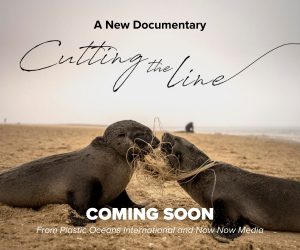Have You Found Your Blue Mind?
How do you feel when you sit on a beach watching the waves of the ocean lapping up against the shore? What about that sensation of dipping your toes in a nice cool lake on a hot summer’s day? Or even when you run a nice warm bubble bath after a long stressful day and let your body soak in the tub?
That feeling can be described as a Blue Mind state. It is a mildly sedative state characterised by calm, peacefulness, unity and a sense of general happiness and satisfaction with life in the moment.
It describes the range of emotions that we feel when we are in contact with water. We naturally have a very personal and emotional relationship with water, whether we realise it or not. If you think about your answers to the first questions you could be finding your way into your Blue Mind … and more feelings of calm, creativity, and being connected and collaborative.
Exploring the Blue Mind Science
Despite our obvious emotional connection to water, Dr. Wallace J. Nichols, author of the bestselling book Blue Mind: The surprising science that shows how being near, in, on, or under water can make you happier, healthier, more connected, and better at what you do, recognised that there was a significant lack of language and discussion of this, particularly in academia. That was where his research began.
I had the pleasure of interviewing Dr. Wallace J. Nichols and hearing first-hand his explanation of the science of Blue Mind and how we can and must apply it to our lives and our work. He mused about how, in science, we often miss something incredibly important and fundamental … our feelings.
Blue Mind studies the neurological responses that humans experience when connecting with water and how this can have a positive impact on our mental state. It offers a scientific explanation for our emotions in relation to water.
Dr. Nichols very beautifully put it, “Blue Mind gives us a frame to talk about intangible values for one of the feelings that makes life worth living.”
Blue Mind Stories
Throughout his years of research, Dr. Nichols has explored the stories of people whose lives have been changed, for the better, thanks to their relationship to water.
For example, in the US, ex Army veterans have taken to the water as surfers, which has helped to ease anxiety, depression and PTSD conditions. Other water-related activities, such as fishing, swimming, rowing, and simply walking around a lake are also being used as therapeutic practices.
People all over the world are benefiting from Blue Mind and, as mental health problems continue to rise, I can’t help but think that we could all use a bit more Blue Mind.
How can we get more Blue Mind in our life?
Clearly, being in a Blue Mind state is good for us. But unfortunately, oftentimes we can be pushed into Red or Grey Mind states. The Red Mind is a state of overstimulation, anxiety and stress and the Grey Mind is a state of depression and sadness. So how can we get more Blue Mind?
- Go for a swim
- Take up a water-related hobby
- Spend time by water
- Appreciate water
- Protect the waters
- Read Dr. Nichols’ book!
Blue Mind in Conservation

Dr. Wallace J. Nichols.
While speaking with Dr.Nichols we discussed how we can apply Blue Mind science to our conservation efforts.
By adding the emotional wellbeing aspect to the importance of our waters, it improves the value equation when assessing the importance of ocean conservation. Dr Nichols believes that Blue Mind science needs to be included in ocean policy and that environmental and public health concerns are completely interlinked.
And what about if we, as conservationists, are able to take a Blue Mind approach to our work? Can we channel the energy that we feel from our connection to water to create a sustainable conservation movement? Perhaps Blue Mind science could be the new tool that we all need.
You can take a look at how we act to protect our waters at Plastic Oceans, by exploring our BlueCommunities initiative HERE, or our upcoming Trees & Seas festival HERE.
In the words of Dr. Wallace J Nichols, “The waters are a source of lifelong calmness, peace, freedom, joy, wonder, awe, romance, creativity and we need to be reminded of that”.
For more information about Dr. Nichols and the evolution of Blue Mind theory you can check out his website: https://wallacejnichols.org/
Special thanks to Dr. Wallace J Nichols for allowing me to pick his brain on the topic, it was an inspiring and moving talk.
Lydia Gaskell is the content creator for the European branch of Plastic Oceans. She joined the team recently to use her researching skills and passion for the environment to help the team with writing articles and blog posts, social media posts and getting stuck in to any other projects she can.


